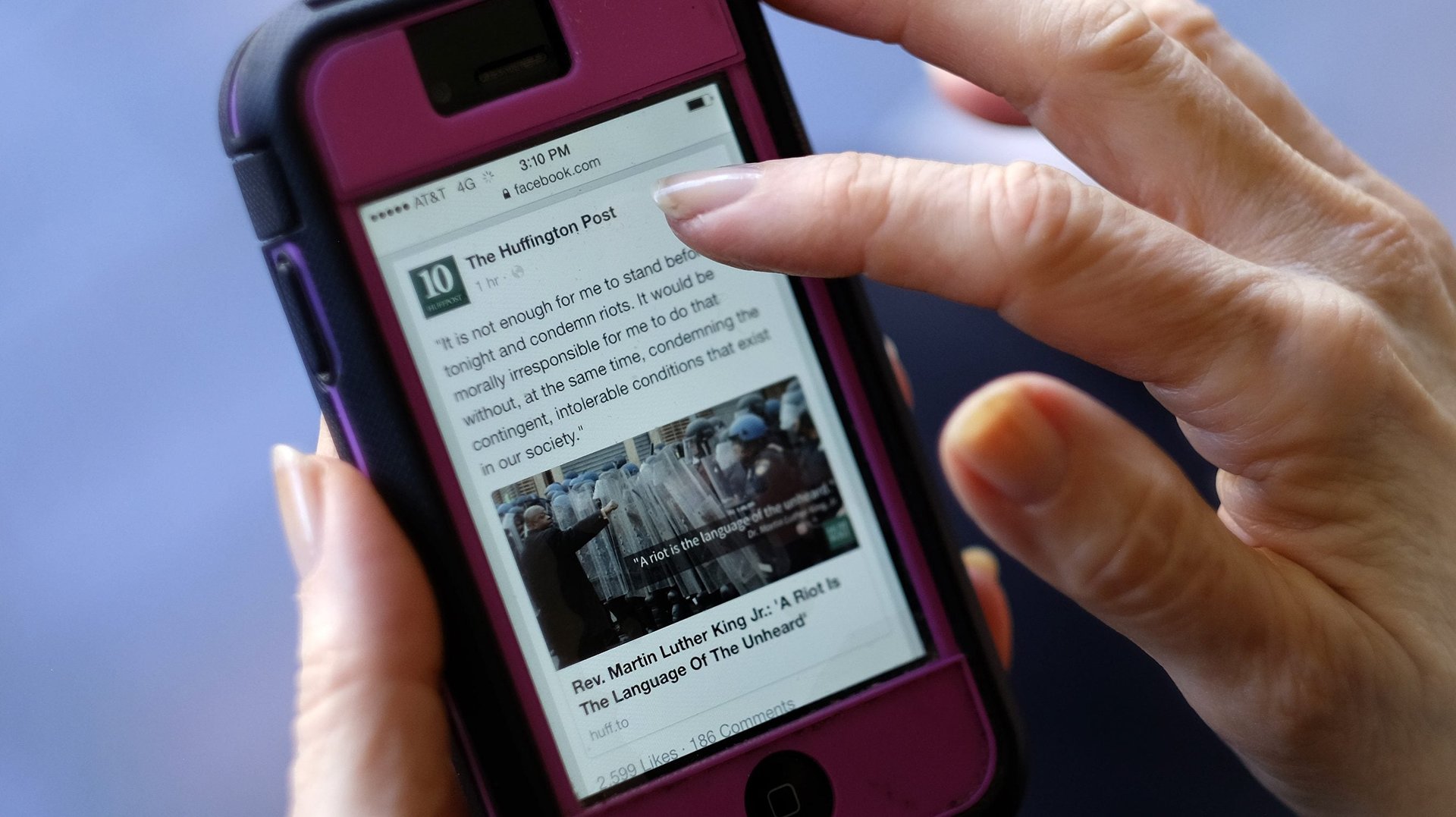One in 10 Americans who find their news stories through links thinks Facebook is a news outlet
Social media has muddied some readers’ understanding of what constitutes a news outlet. A new study found that a small share of US consumers who encountered news on Facebook mistakenly believed the news originated on the social-media platform.


Social media has muddied some readers’ understanding of what constitutes a news outlet. A new study found that a small share of US consumers who encountered news on Facebook mistakenly believed the news originated on the social-media platform.
The Pew Research Center, in a new study, endeavored to understand how Americans found, recalled, and acted up the news they read online. The company, with support from the John S. and James L. Knight Foundation, interviewed 2,000 US adults about their online news consumption during one week last winter, and asked respondents twice a day whether they had received news online in the past two hours, and what their experience was with that news.
Those readers who said they followed links to news stories from social media, texts, or emails were asked to identify the names of the news outlets they landed upon. About half of the time—56%—they were able to do so. (The study did not say whether they did so correctly.)
But a troubling 10% of those asked to name the source of their news wrote “Facebook” as the specific news outlet, the study said.
The respondents either misunderstood the question, or, more alarmingly, believed that the social-media network was behind the news. (After much protesting that Facebook is not a media company, Mark Zuckerberg has started to accept some of the responsibilities of dominating the news ecosystem.)
The results are quite alarming given the current media environment in which nefarious outlets have sought to undermine factual reporting with lies for their own gain. How can readers trust their news, and share it confidently, when they literally don’t know where it’s coming from?
The way readers discover news has an affect on how well they recall the outlets, the Pew study shows. Respondents were more more likely to recall the name of a publication they read when the news came directly from the outlet, such as through an email, text alert, or app notification. But as has been the case in the last decade, it also found that US consumers were nearly as likely to get online news from social media as they were to get it directly from news sites and apps.
They were also less likely to share, search for more information, talk about, or otherwise act upon the news when it came from a news site or app than when it came from a family or friend, or, to a lesser extent, social media.
This appears to be the first year Pew conducted this particular study, so it’s unclear whether these trends are growing. But the findings underscore the challenges news organizations face when it comes to building trust with readers in the digital age.
Update (6pm ET): The statistics in this post were corrected based on input from Pew Research.